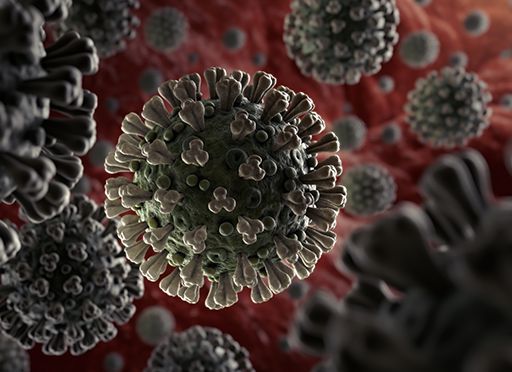Yale Law professor John Fabian Witt offers a compressed historical overview of how the law has guided America’s responses to pandemics.

Epidemics and the Law
John Fabian Witt – the Allen H. Duffy Class of 1960 Professor of Law at Yale Law School – explains how infectious diseases historically shaped American life and law. Witt contends that epidemics force people to rethink civil rights and liberties, and to confront racial injustices and economic inequality.
He shows how epidemics have forced society to create institutions that conserve people’s rights while fighting the spread of infectious diseases. Witt argues that deploying the law in the battle against epidemics has helped Americans acknowledge and confront their core values. Witt’s text will engage anyone who is following the United States’ government’s response to the coronavirus pandemic and the American public’s often-baffling reactions.
The unanimously positive critical response to Witt’s book included a review in The Wall Street Journal which said, “In this brief and readable account, Mr. Witt describes the history of American efforts to prevent pandemics from breaking out and to grapple with them once they do.” William Novak, author of The People’s Welfare: Law and Regulation in Nineteenth-Century America, went even further, saying, “With this urgently needed book, John Witt has…produced a complex, authoritative and accessible synthetic history of the interrelationship of law, epidemic and public health regulation in America.”
American Law
Witt describes how infectious diseases –such as smallpox, yellow fever, polio, typhoid fever and influenza – have influenced American law and life for the greater part of US history. In response to epidemics, he reveals, Responding to epidemics, he reveals, led to cities washing streets and piping clean water into homes and spurred the creation of government agencies.
Historically, the law of epidemics has prompted Americans to make choices about basic values.John Fabian Witt
Witt further details that the US Constitution demands that the federal government delegate legal authority to the states for responding to infectious diseases.
Government Authority
Witt discloses that smallpox killed more people than combat during the War for Independence. Refugees from the Haitian revolution brought yellow fever to Philadelphia in 1793 and to New York a few years later. Cholera arrived in the 1830s and caused thousands of painful deaths. Lawmakers and scientists, Witt laments, understood little about these diseases, but regarded them as a public problem requiring public responses.
Courts in the early republic almost universally upheld the government’s authority to manage the spread of infectious disease.John Fabian Witt
Early on in the United States, courts supported government efforts to prevent and control infectious diseases. Federal judges maintained the “quarantine and detention” of boats arriving in American ports. The Georgia Supreme Court upheld fining a man who refused to observe a quarantine on travel from smallpox-riddled cities. State courts, as Witt explains, later affirmed the federal government’s power to protect people’s health, including mandatory vaccination laws.
“Sanitationism” and “Quarantinist”
Witt identifies the 19th century “jurisprudence of hygiene” that led to movements advocating progressive social reform. It held, Witt notes, that if social and physical circumstances, especially in large cities, abetted the spread of infectious diseases, then the government should improve those circumstances. Witt cites a philosophy of “progressive sanitationism,” which held that the law might overlook liberty and property rights in order to serve public health.
Witt discusses conservative sanitationists who believed that the government should take public health measures to prevent the infectious diseases that thrived in slums from reaching affluent neighborhoods. The author analyses the quarantinist approach as antidemocratic, and says local authorities often exercised it in a way that was prejudicial against people of color and immigrants.
Quarantines in North America go back to the Massachusetts Bay Colony. In 1647, the colony quarantined boats from Barbados during a yellow fever outbreak. In 1662, colonial New Yorkers banned local indigenous people from coming into town for fear they would bring smallpox. From early on, public health administrators imposed restrictions specifically on minority communities and people of color. For example, in 1900, after a suspected bubonic plague fatality, San Francisco (which suffered a plague outbreak) quarantined Chinatown in a reaffirmation of its discriminatory racial hierarchy.
Witt reports on a US Supreme Court ruling confirming states’ rights to enforce quarantines in international port cities and its 1882 ruling supporting the Chinese Exclusion Act, which shaped the government’s role on border issues and granted the federal government power over immigration.
Witt finds that populist libertarian resistance to legally enforced public health measures has had little impact on constitutional law. He regards US courts and judges as mindful and reserved regarding public health law. Witt portrays respect for civil liberties as wise public policy and offers a better course for forestalling epidemics: make sure infected people have proper housing and provide public health insurance to everyone.
American legal responses to pandemics have targeted the poor, people at the border and nonwhites. America’s record on infectious disease is filled with discriminations and authoritarianisms.John Fabian Witt
Witt states simply that the United States’ response to the coronavirus reflects its legal and social history. Courts tended to respect state powers, but Witt cautions that citizens and government entities exploit the courts for partisan purposes.
Witt concludes that federal officials have abdicated authority to state governors, who generated a variety of responses with little coordination.
Condensed Brilliance
Witt offers a tight, brief, fascinating and illuminating journey through American law and its responses to disease. He shows how the contemporary response to COVID-19 – disorganized, decentralized, ridden with willful ignorance and partisanship – reflects parallel responses to infectious diseases since the United States began. Witt writes for readability and comprehension, and perhaps his first intention for this work was to create an enduring textbook. Certainly anyone curious about how the United States’ response to COVID reflects existing law will be unable to put this down. Witt provides an extraordinarily cogent description of an extraordinarily confusing time.
Witt also wrote Lincoln’s Code: The Laws of War in American History, which won the 2013 Bancroft Prize in history of the Americas. Other worthy books on epidemics and their social impacts include The Great Influenza by John M. Barry and Epidemics by Joshua Loomis.







